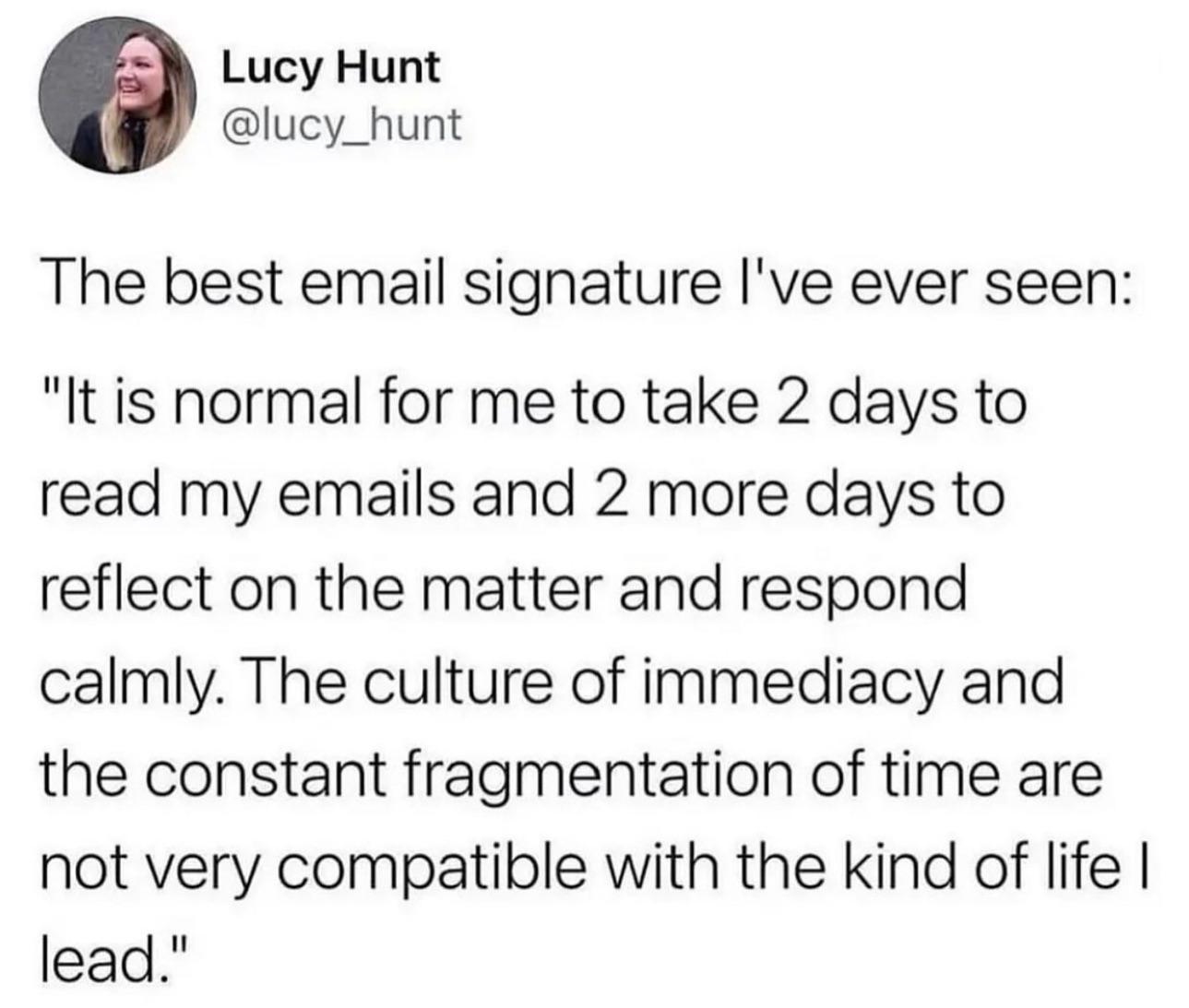this post was submitted on 19 Aug 2024
1229 points (98.3% liked)
People Twitter
5162 readers
1872 users here now
People tweeting stuff. We allow tweets from anyone.
RULES:
- Mark NSFW content.
- No doxxing people.
- Must be a tweet or similar
- No bullying or international politcs
- Be excellent to each other.
founded 1 year ago
MODERATORS
you are viewing a single comment's thread
view the rest of the comments
view the rest of the comments

The benefit of things like Slack is that you can ask a group instead of a specific individual, so I treat group chats like others treat email. You can do that with email, but there's always the risk that someone will forget to reply all (so multiple people will try to do the same work), or the annoyance that someone replies to the group accidentally. With Slack, I can easily check if someone has responded at my regular check interval.
I very rarely directly message anyone on Slack, because that's disruptive to their workflow. In the odd case where it needs to go to a single recipient and isn't urgent, I'll prefix the message with "not urgent" so they know they can safely ignore the message. The net result is that I can fit multiple use-cases into one system (broadcasts, less urgent one-on-one communication, urgent one-on-one communication), so I only need to check the one place.
At one company before we switched to Slack, I would have to check:
Email was our primary communication method, and that had some issues:
Slack fixed a number of these issues:
I can usually hold 3-4 separate conversations at the same time in Slack, which I think has reduced our need for meetings. I can give short responses without having to anticipate other potential questions, because I know they'll probably respond soon. So I end up engaging with Slack more often than email, but I spend less total time using it vs email because I don't need to think through my responses nearly as carefully.